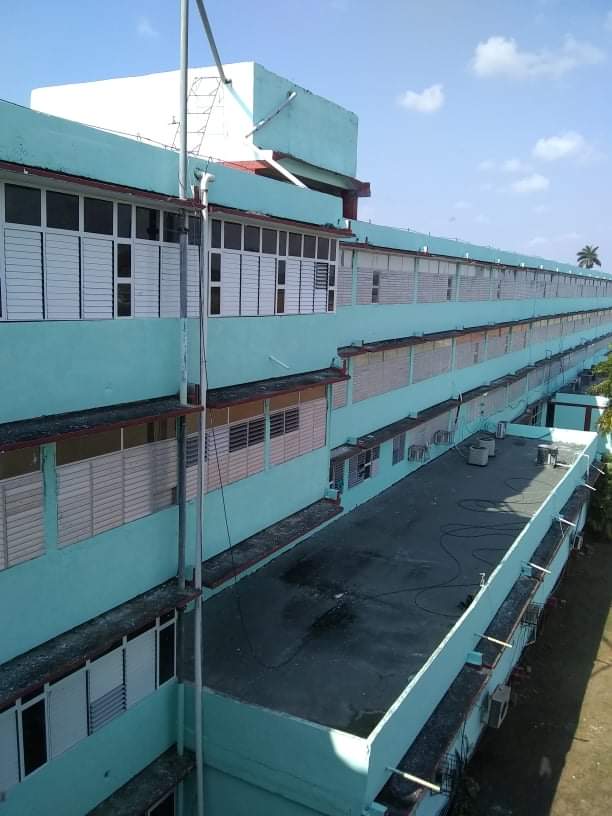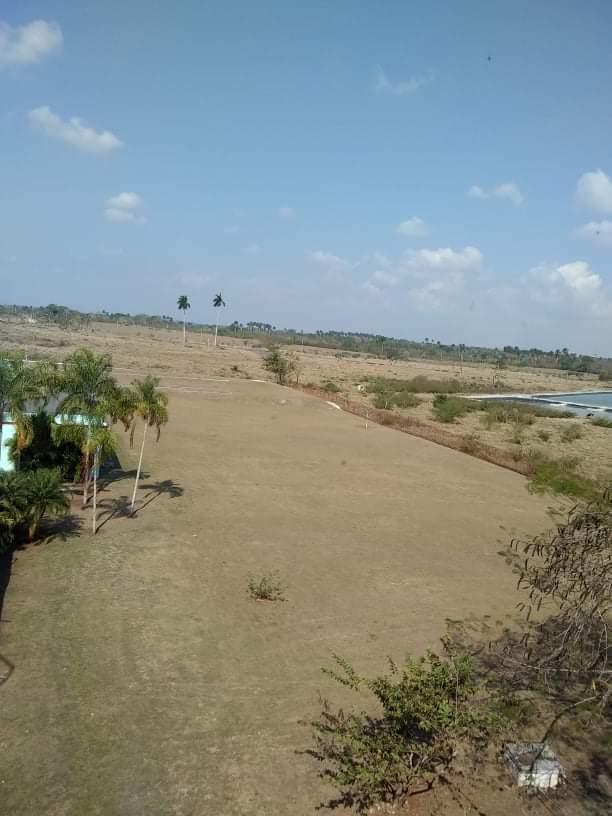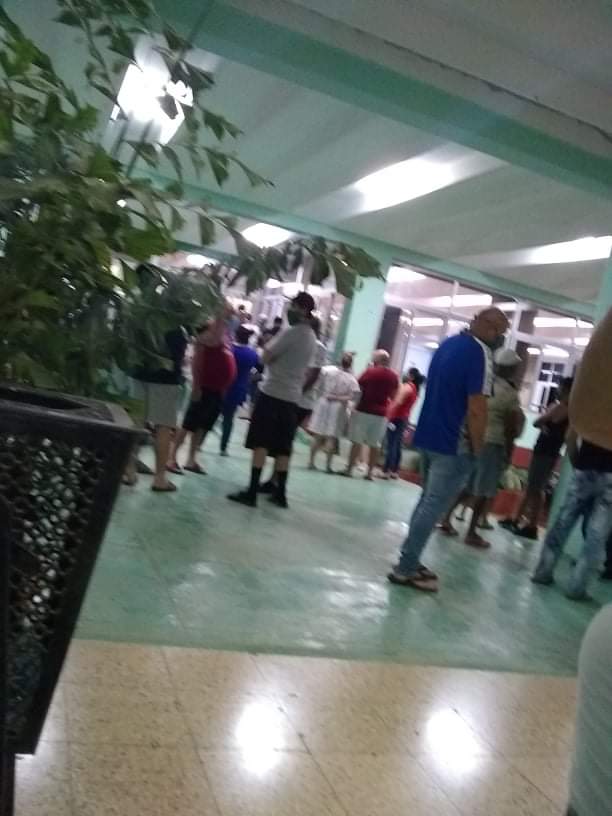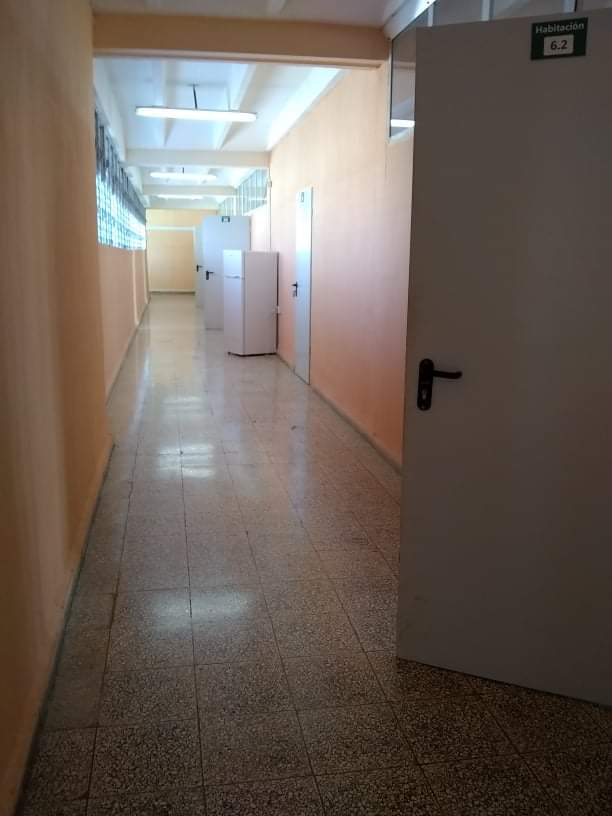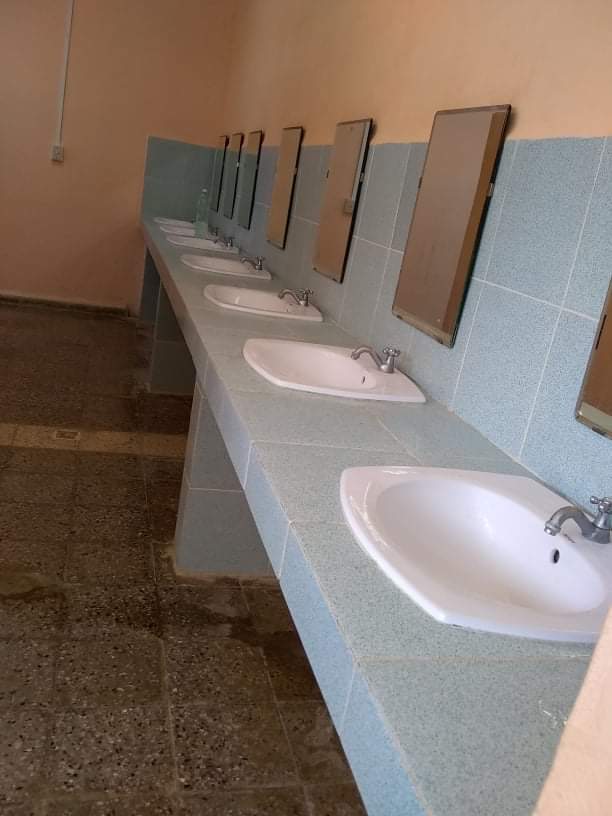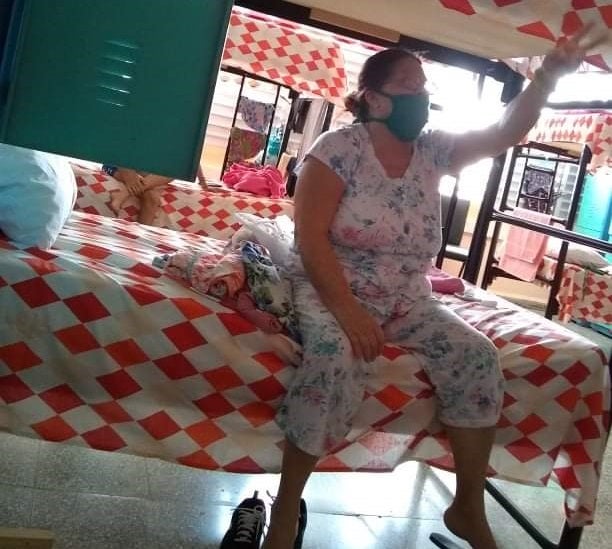
 Cubanet, Miriam Celaya, Havana, 30 March 2020 — On March 23rd, in his presentation on the Roundtable broadcast on all Cuban television channels, Cuban Prime Minister, Manuel Marrero Cruz, reported about new official measures that would deepen controls to combat the spread of the COVID-19 pandemic on the Island. Among them, it was established that all Cubans residing in the country, on their arrival from abroad, would be placed in solitary confinement to serve a mandatory two-week quarantine before returning to their respective homes.
Cubanet, Miriam Celaya, Havana, 30 March 2020 — On March 23rd, in his presentation on the Roundtable broadcast on all Cuban television channels, Cuban Prime Minister, Manuel Marrero Cruz, reported about new official measures that would deepen controls to combat the spread of the COVID-19 pandemic on the Island. Among them, it was established that all Cubans residing in the country, on their arrival from abroad, would be placed in solitary confinement to serve a mandatory two-week quarantine before returning to their respective homes.
In order to comply with this measure, said Marrero Cruz, all the necessary conditions had been created in centers specially designed for such purposes, to which travelers would be driven directly from the airport, under strict police control, and duly transported by State buses. Additionally, it was established that the travelers’ relatives would not have access to the airport to avoid any possible contagion and spread of the disease.
Unlike other practices whose compliance has not yet been verified in practice, the isolation and transfer to isolation centers of Cuban travelers went into effect immediately.
Magela was one of those Cubans who arrived back in Cuba on Tuesday, March 24th and was surprised by what seemed to her a true state of siege at José Martí Airport in Havana. The police deployment, health personnel and border authorities controlling each traveler, issuing orders and preventing their departure, evoked a Hollywood movie atmosphere.
“There was an air of uncertainty and fear among us” stated Magela. “I know that taking measures to prevent the disease from spreading in Cuba is necessary, but it is such an impressive situation to find all those personnel in their protective suits, and it is so strange to feel treated as someone with the bubonic plague that fear took hold of me. Deep down I felt a very strong wish to cry.”
However, Magela set out to assume the inevitable. In the end, she felt that undergoing quarantine was the safest thing for her and even her own family. It was reasonable and necessary, she told herself. And without protest, with other traveling Cubans like her as companions, she got on the bus that would take them to the isolation center.
“Thus, we entered the center on Tuesday afternoon. They told us that we were in El Cotorro, but I don’t know this place. It is a rural center, away from everything. If you look out the windows, all you see are fields.”
The first thing that surprised Magela at the isolation center was the forced proximity to the rest of the recluses. Several bunk beds were placed too close to each other, forcing promiscuity, as dangerous as it is unnecessary, especially in a facility that, according to those in charge of the place, has a capacity for 600 people.
“There are only around 200 here for now, in addition to the staff, but people crowd in the lines at the dining room because we are all hungry and sometimes meal waiting times are long. Even though they give us protective masks that we must use, there is not enough control over the distance between us. In addition, there are always people who are undisciplined or unaware of the risk.”
To make things worse, men and women share bathrooms on each floor, which further affects privacy. Magela believes that this results from the fact that “they,” the ones in charge, were filling the floors as travelers arrived. It seems that they did not take into account separating the bathrooms used by women from those used by men. It’s terrible.”
Another point that concerns Magela is that of cleanliness. “There are a lot of us, and hygiene is not as it should be. It has been talked about endlessly that hygiene is the most effective measure to combat the corona virus, right? Well, that is not the case here. In general, everything looks clean, but when you look at the details you realize that the required hygiene is lacking. The mirrors are stained with soap and everyone’s splashes, the normal fluids of personal hygiene — hand, face, mouthwash — are poured in the sink and they do not receive a thorough cleaning. There is also no cleaning in the rooms or hallways.”
I asked one of the people in charge if they have not raised those concerns with management. “They tell us that nobody wants to come to clean because people are afraid of catching it.” Those confined there cannot clean either, since they do not have the resources and means of protection to do so.
It is true that they deliver protective masks and chlorinated solution daily, plus they also supplied the travelers with soap and toilet paper upon arrival, but Magela declares that “conditions were not set up as they should have been. I tell you that it is not the fault of the personnel assisting us, but I do believe that it was the duty of the State to protect us with the necessary means if this confinement was to take place.”
And after a brief pause, she adds: “They (the government and the authorities in charge) think that what they are giving us is more than sufficient and get upset when one asks a question or demands something. And if you protest, they label it a gusanería*. That is not the case. We are asking about the reality we are living here and not about lies or insults. It turns out that in the end we are isolated but not protected. We are all very afraid of catching it because nobody knows who may or may not be an asymptomatic carrier of the virus.”
Of course, no one has been tested to rule out contagion. For this, it is necessary to present symptoms, although this waiting threshold supposes the possibility of infecting others.
Magela says she understands the situation in the country, and the importance of this quarantine, but she is frustrated because she expected better conditions. “I think that the resources that have been invested despite the country’s shortages are useless, since the fundamental thing at the moment is true isolation and hygiene and we have neither.”
“For example, the protective masks are changed every day, but not so the sheets and towels. They tell us that these must come from a company, and we don’t know which or when. I believe that if nobody can come to do the cleaning or if there are no answers to our concerns, they are going to have to find some solution. Let the FAR (Revolutionary Armed Forces) or another organization respond”.
Here I feel compelled to remind Magela that, among the strengths of the Revolution that the high authorities of Cuba so much like to mention, are the mass organizations – CDR (Committees for the Defense of the Revolution), FMC (Federation of Cuban Woman), and others – and also that vanguard of society, the PCC (Cuban Communist Party). Perhaps they should designate hygiene care in isolation centers a shock task for the communist militancy. After all, aren’t they the first line of defense fighters? Here is a good time to demonstrate their courage and spirit of sacrifice when the Homeland calls.
Despite everything, Magela does not want to be unfair. “Let me tell you that the food is not bad, considering the shortages that exist in Cuba. In the dining room they give us chicken, rice, beans, salad, ham, yogurt… The truth is that we have nothing to complain in that regard.”
There is also a cafeteria at the center, although not everyone is able to purchase stuff. “How it works is that they sell us in new Cuban convertible peso (CUP), but the majority of us confined here have US dollars. Let’s remember that there is a ban on taking Cuban currency out of the country and we are returning from abroad with foreign currency.”
This is another detail that the authorities have not taken into account. Consequently, the few who have CUC or national currency – who perhaps took it on their trip abroad in violation of the provisions of the law – now have an advantage over the rest. Thus, the national adage is fulfilled, where the cheater wins, often protected by the State itself.
But there is no end to the calamities. “Another problem is mosquitoes. Although they spray every day, we cannot sleep at night because there are so many mosquitoes.” However, those who are confined on the big Island do not have mosquito nets assigned to them, which introduces the additional risk of a dengue outbreak, another health scourge that is already endemic in Cuba, striking the population with more or less intensity every year. Let’s keep our fingers crossed.
Magela has little data left on her phone, the balance of the service she purchased is very low, and she still wants to send me some photos. She will not be able to buy a new round of minutes/data to connect to the Internet, nor will she have a way to communicate, unless her family or friends purchase additional time, because there is no free access for the purchase of telephone cards in the center. “Upon arrival, we were told that the Cuban telephone company Etecsa would give each one of us a free 5 CUC phone card to use, but we have not received it yet. They have already told us that people from Etecsa are here, and we are hoping that they will give us the cards today.”
On the other hand, I expect more. I hope that the official practices this time are not just letters piled on paper and all the necessary conditions are created for the safety of our quarantined compatriots, especially in terms of issues related to the strictest hygiene standards, the greatest possible respect for privacy and the proper distance between quarantined inmates. These are the minimum guarantees that we must demand of a Power that professes solidarity and presents itself as humanistic, and that asserts itself as a world-class medical power. There has never been a better time to prove it.
*Gusanería (Nest of maggots) Very informal, pejorative term used when referring to counterrevolutionaries

